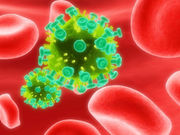Improves working memory performance, cuts brain activation in HIV participants, seronegative controls
MONDAY, Oct. 24, 2016 (HealthDay News) — Adaptive working memory training (WMT), but not non-adaptive WMT, improves working memory performance in HIV participants and seronegative (SN) controls and reduces brain activation at one and six months, according to a study published online Oct. 19 in the Annals of Neurology.
Linda Chang, M.D., from the University of Hawaii at Manoa in Honolulu, and colleagues examined the effectiveness of an adaptive WMT program in HIV participants compared with SN. Baseline assessments were completed by 201/206 qualified participants before randomization to 25 sessions of adaptive WMT or non-adaptive WMT. All participants underwent non-trained near-transfer WM testing, self-reported executive functioning, functional magnetic resonance imaging during one and two back tasks, and LMX1A-rs4657412 genotyping.
The researchers found that at baseline, HIV participants had slightly lower cognitive performance and Start Index than SN controls; however, one month later, both groups improved on the Improvement Index and non-trained WM tests after adaptive, but not after non-adaptive WMT. Compared with SN controls, HIV participants (especially LMX1A-G carriers) also had poorer self-reported executive functioning; both groups reported improvements after adaptive WMT, while after non-adaptive WMT there was only improvement for HIV participants. At baseline, HIV participants also had greater frontal activation, but in both groups brain activation decreased at one month and six months after adaptive WMT; normalization of brain activation was seen in HIV participants, especially carriers of LMX1A-AA.
“These findings suggest adaptive WMT may be an effective adjunctive therapy for WM deficits in HIV participants,” the authors write.
Full Text (subscription or payment may be required)
Copyright © 2016 HealthDay. All rights reserved.








